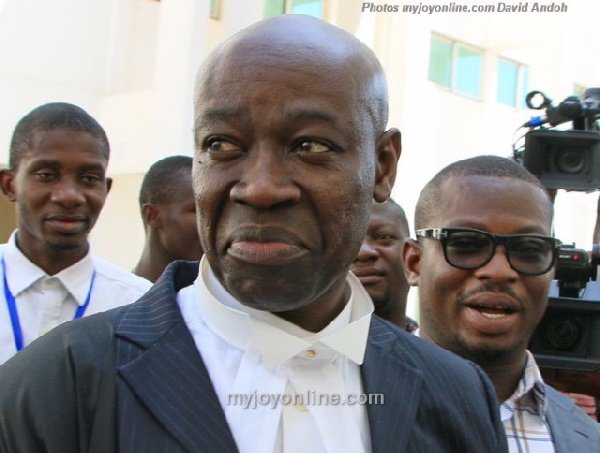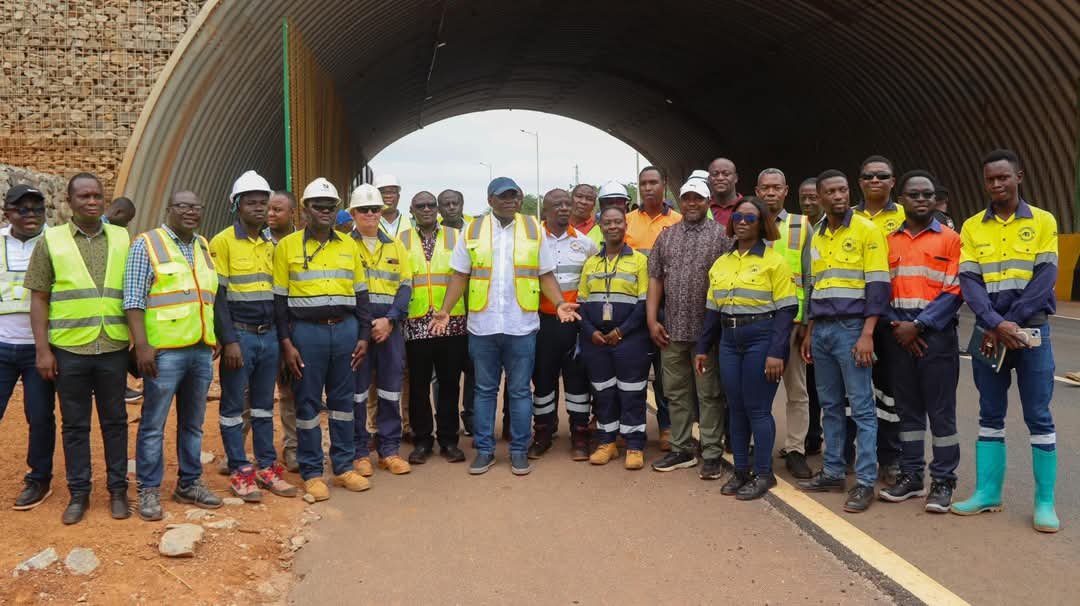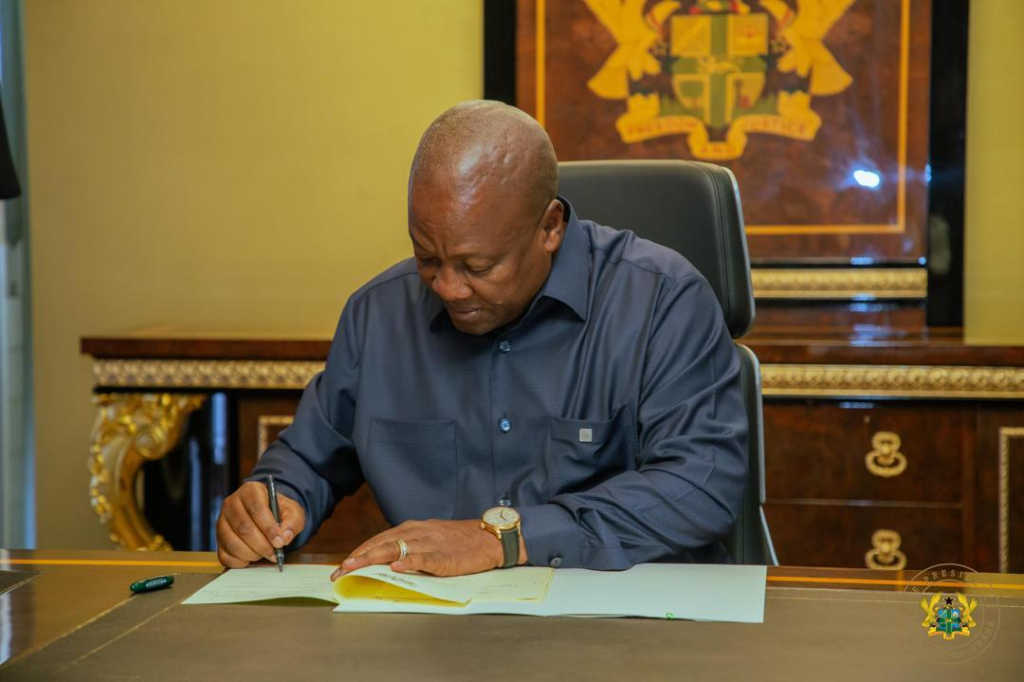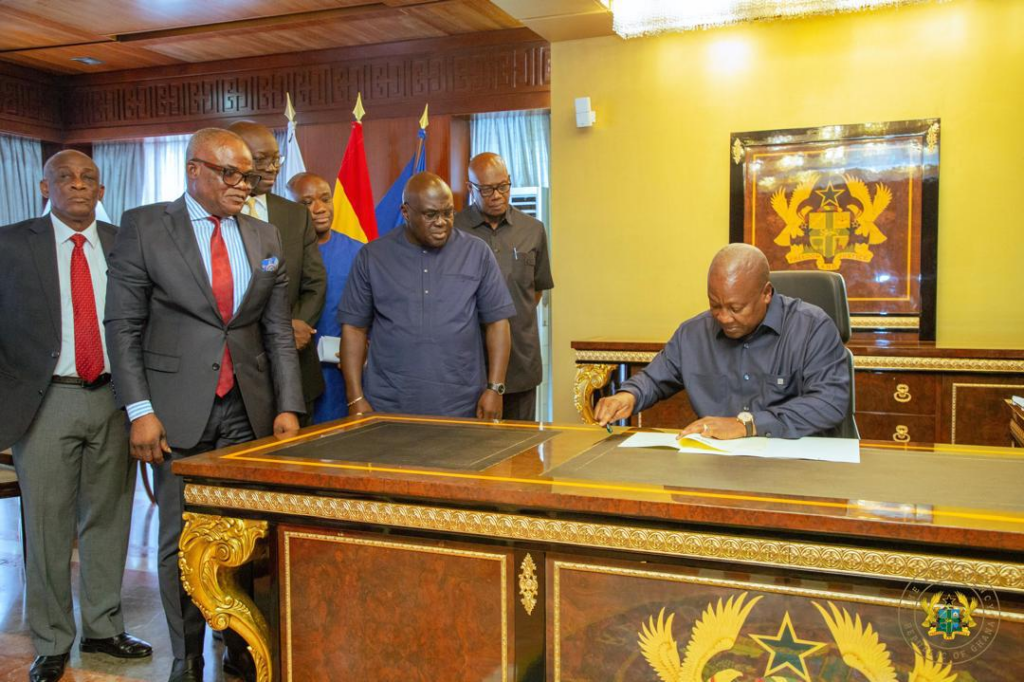News
To thine own self be true- Let the law work

On the evening of Tuesday, March 25, 2025, social media reports indicated that His Excellency, the President of the Republic of Ghana, had forwarded three petitions for the removal of the Chief Justice to the Council of State. This step is a constitutional requirement under Article 146(6) of the 1992 Constitution, which states:
1.“Where the petition is for the removal of the Chief Justice, the President shall, acting in consultation with the Council of State, appoint a committee consisting of two Justices of the Supreme Court, one of whom shall be appointed Chairman by the President, and three other persons who are not members of the Council of State, nor members of Parliament, nor lawyers.”
2.Two days later, at 9:20 AM on Thursday, March 27, 2025, the Hon. Vincent Ekow Assafuah of Old Tafo, in Kumasi filed an action at the Supreme Court challenging the President’s referral of the petitions to the Council of State.
3.Mr. Assafuah argues that the President is required, under Articles 146(1), (2), (4), (6) and (7), 23, 57(3), and 296 of the Constitution, to:
“…notify the Chief Justice about a petition for her removal and obtain her comments and responses before referring the petition to the Council of State or commencing consultation with the Council of State.”
4.This claim raises a number of intriguing questions:
i. How did Mr. Assafuah, within just one day, ascertain that the Chief Justice was not consulted before the petitions were referred to the Council of State?
ii. Did the Chief Justice personally inform him that she was not consulted?
iii. Was there any media report confirming that the Chief Justice had been bypassed in the process?
5.And Godfred Dame as his lawyer? As the musician Joseph of Culture says, “this is neither a jigsaw nor a puzzle.” Things are falling into place. We either survive together or perish together.
6. That aside, only Article 146(6) is relevant in determining whether the President was required to seek the Chief Justice’s comments before consulting the Council of State.
7.Article 146(6), in clear and unambiguous terms, states that when a petition concerns the removal of the Chief Justice, the President must act in consultation with the Council of State.
8.In Agyei Twum v. Attorney General & Akwetey, Justice Date-Bah, speaking for the Supreme Court, held that just like other Justices of the Superior Courts, a prima facie case must first be established against the Chief Justice before a committee is empaneled to investigate the petition.
9. However, the Agyei Twum case did not specify how the prima facie determination should be made. What is certain, however, is that the President must act in consultation with the Council of State. The President’s decision to refer the petitions to the Council of State is, therefore, in strict compliance with the Constitution.
10. The following questions expose the suit for what it is—Much Ado About Nothing:
i. If the Constitution explicitly states that “where the petition is for the removal of the Chief Justice, the President shall act in consultation with the Council of State”, is it unconstitutional for the President to refer the petitions to the Council of State?
ii. Isn’t the referral the first logical step in discussing the prima facie determination and the procedure for it?
iii. Should the President unilaterally decide on the petitions without engaging the Council of State, as mandated?
iv. Does referring the petitions to the Council of State amount to a prima facie determination without giving the Chief Justice a hearing?
v. Does this referral prevent the Chief Justice from later providing her comments on the petitions?
11. In the first petition, the former President’s response suggested that the Council of State had been consulted before the determination that no prima facie case had been made against the Chief Justice.
12. Yet, the President’s letter to Prof. Azar does not indicate that the Chief Justice was asked for her comments before that determination was made.
13. The Chief Justice believes in the law. There is no need for presumptive protection. Every Ghanaian believes in the law.
14. The law requires that the President act in consultation with the Council of State. That consultation is currently ongoing. Let the process unfold. The Council of State has its own esteemed legal minds—trust them as much as you have always asked us to trust you.
15. To Proxy Assafuah, let me offer a lesson from the Acts of the Apostles. In Acts 5, Peter and his fellow apostles faced intimidation aimed at silencing their mission. Yet, despite the threats, they persisted in preaching the gospel without seeking legal recourse.
16. When they were eventually arrested and brought before the High Priest, Gamaliel, a respected Pharisee, offered wise counsel:
17. He reminded his colleagues of Theudas and Judas, two men who falsely claimed divine backing but ultimately perished. Gamaliel then gave this timeless advice in Acts 5:38-39:
“…Refrain from these men, and let them alone: for if this counsel or this work be of men, it will come to nought: But if it be of God, ye cannot overthrow it; lest haply ye be found even to fight against God.”
18. So be it, Hon. Mr. Proxy! leave the petitioners alone for if their counsel or work be of men, their petitions will come to nought, but if it be of God, and their cause is just, no court action can overthrow it.
By Thaddeus Sory
News
Reconstruction of Sunyani-Techiman-Wenchi-Wa-Hamile Road Corridor to Begin Under “Big Push” Initiative

The reconstruction of the Sunyani-Techiman-Wenchi-Wa-Hamile road corridor is set to begin in the third quarter of this year as part of the government’s “Big Push” initiative,
Kwame Agbodza, the Minister for Roads and Highways, has announced.
To this end, the Minister has directed the Ghana Highways Authority to conduct engineering studies and designs for sections of the corridor that are not currently under construction, in preparation for the upcoming work.
“This entire corridor, all the way to Hamle, is part of the ‘Big Push’ initiative. It is one of the “Big Push” projects we aim to award in June this year. Therefore, those involved in the studies and designs need to expedite their work. We don’t have enough time,” he stated.
Mr. Agbodza made these remarks this morning in Sunyani, at the start of a three-day inspection tour of the Bono, Bono East, Ahafo, and Western Regions.
The Minister indicated that government is aware of the socio-economic importance of roads towards national development, which is why road infrastructure development is being prioritized despite the financial constraints facing the country.
“No matter what we want to achieve—whether in farming, education, or healthcare—roads are critical. Our economic development cannot take shape if we do not address the challenges in the road sector,” he stressed.
Earlier, Me. Agbodza and his team of Engineers inspected the 10.20km Terchire bypass located off the Kumasi-Sunyani Highway constructed by Newmont Ghana.
During the tour, Hon. Agbodza is also expected to inspect several other road projects, including the reconstruction of the Jinijini-Sampa Road, the Tepa-Goso road, the Sefwi Wiawso town roads, the reconstruction of the Tarkwa-Agona Nkwanta road, the PTC Interchange project, and the dualization of the Takoradi-Agona Junction Road.
News
Mahama assents to Acts abolishing e-levy, betting tax and others

President John Dramani Mahama has fulfilled a key campaign promise by assenting to a set of acts that abolish the betting tax, e-Levy, and emissions tax, among others.
The signing, which has just been completed, in his office marks a major step in his administration’s efforts to reduce the financial burden on Ghanaians and drive economic growth.
The removal of these taxes was a central promise in the NDC’s manifesto aimed at easing the cost of living and encouraging business expansion.


Parliament on Wednesday, March 26, passed a bill to abolish the controversial Electronic Transfer Levy (E-Levy).
The repeal of the E-Levy has been widely welcomed by Ghanaians, who strongly opposed the tax.
The levy, which was introduced in 2022 by the previous New Patriotic Party administration, imposed a 1.5% tax on electronic transactions, including mobile money transfers, bank transfers, and online payments.
Since its introduction, there have been protests and public outcry, with critics arguing that it disproportionately affected low-income earners and the unbanked population.
Source: Myjoyonline.com
-

 News1 week ago
News1 week agoDeclaration of Monday, 31st March 2025 and Tuesday, 1st April 2025 as Public Holidays
-

 News6 days ago
News6 days agoGodfred Agbeteti is best suited to lead Kpando Municipal Assembly – Assemblyman
-

 News1 week ago
News1 week agoGEXIM CEO calls for accelerated empowerment of women in Agribusiness for Africa’s economic growth









